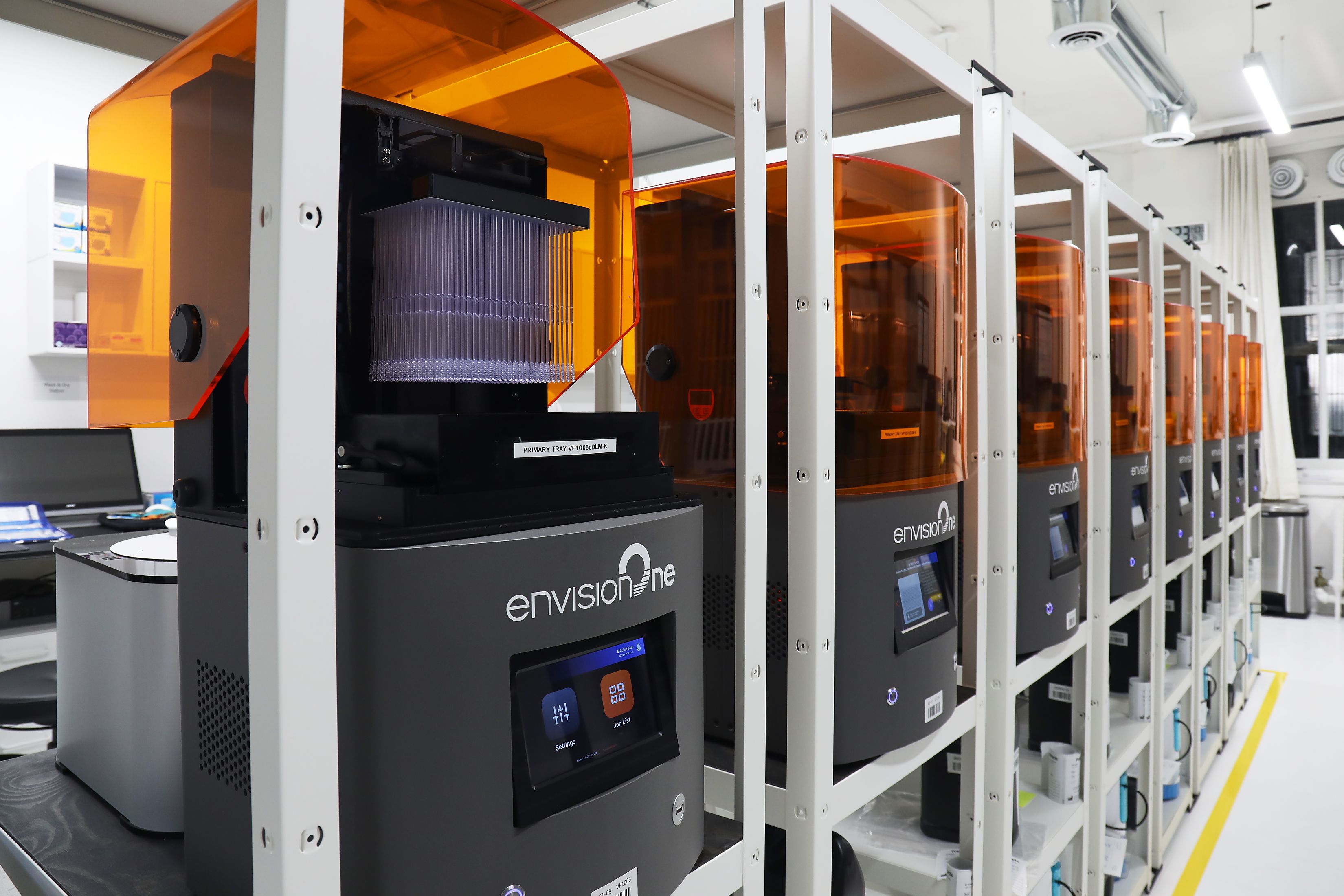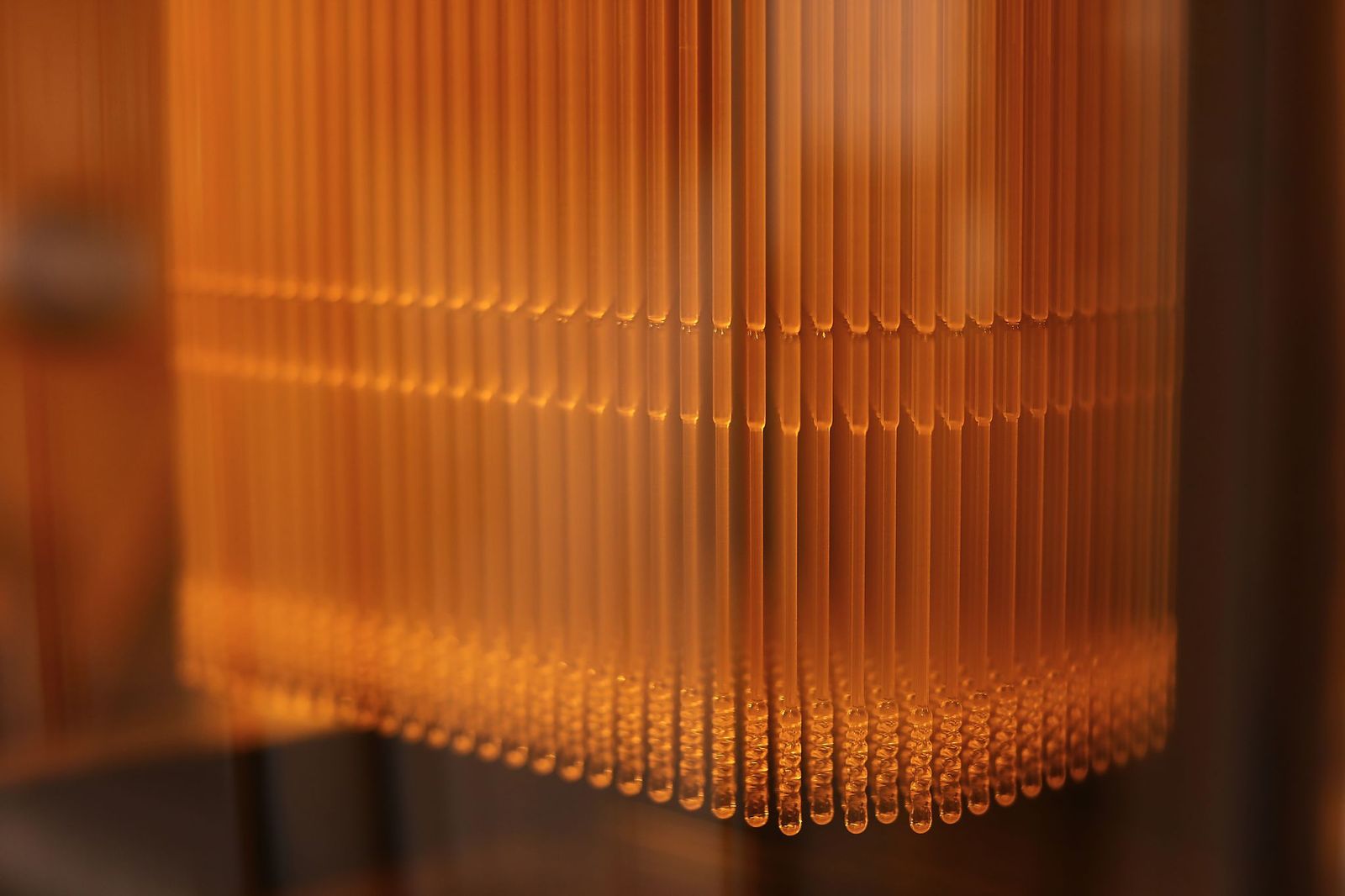3D printing service provider PrintParts has partnered with automated post-processing developer PostProcess Technologies to rapidly-produce COVID-19 testing swabs in New York City (NYC).
At the height of the pandemic, PrintParts quickly expanded its printing capabilities to fabricate nasopharyngeal (NP) swabs for NYC’s COVID-19 test kits. In order to scale its production effectively, the firm opened a new production lab in Manhattan, launched a dedicated supply chain, and began to use PostProcess’ DEMI resin removal solution.
Leveraging the software-controlled hands-free system, PrintParts was able to post-process testing swabs five times quicker than would have been possible using conventional methods. As a result, the company has so far managed to contribute over one million NP swabs to the fight against the deadly disease.
“Pivoting our production business from low-to-mid volume parts for aerospace, defense and industrial manufacturing, to a high volume medical device under extremely tight deadlines, was a huge challenge,” said Robert Haleluk, Founder of PrintParts. “We couldn’t have done it without the PostProcess DEMI.”
“Working with PostProcess has allowed us to move faster and deliver over 1 million NP swabs to NYC, which helped our city fight COVID during these challenging times.”

PrintParts and PostProcess’ joint fight against COVID-19
In the midst of the early pandemic, the 3D printing industry really stepped up to the plate. A number of additive manufacturing firms have since lent their facilities and resources to the fight against COVID-19, and PrintParts and PostProcess were no different.
Identifying an increasing need for NP testing swabs in New York, PrintParts began to work with authorities in NYC, and rapidly expanded its printing capacity to meet the demand for tests there. The company opened a new ISO 13485 compliant production lab in Manhattan, as well as a dedicated supply chain for the kits, to produce them en masse, as quickly as possible.
Bolstering its in-house 3D printing facilities, PrintParts also acquired eight medical-grade Envision One cDLM 3D printers from EnvisionTEC, and partnered with PostProcess to optimize the systems. Using conventional rinse methods with Isopropyl Alcohol (IPA) for resin removal, it would have taken PrintParts over 20 minutes to clean each batch of swabs.
By deploying PostProcess’ automated DEMI solution, the company was able to process multiple batches of the NP swabs at once, in a 90 second, completely hands-free process. Leveraging DEMI post-processing also enabled PrintParts to simplify its production workflow, and process five times more swabs than would previously have been possible.
Following the success of their initial partnership, the founders of PrintParts will be joining PostProcess to discuss their takeaways from the emergency response in a live virtual event.
The webinar entitled “Q&A with PrintParts: Lessons Learned in Rapid Scale-Up for NYC COVID Response,” will be part of PostProcess’ broader Unlock AM LIVE online summit. Taking place from September 15th-16th, the conference will explore topics ranging from the potential benefits of adopting 3D printing, to where the industry is headed next. Interested parties can sign up now via the dedicated event website.

PostProcess’ suite of resin removal solutions
Founded in 2014, PostProcess Technologies develops automated post-printing solutions, with the aim of significantly reducing the time it takes to apply surface finish to 3D printed parts. The firm’s portfolio includes a number of machines, software and materials with this goal in mind, including its BASE system for automated support removal.
Featuring a 360-degree spray, the machine is able to rinse and dry parts while ensuring 100 percent coverage. The system is also compatible with components produced using a range of technologies, including FDM, SLA, CLIP and PolyJet 3D printing. In terms of surface finishing, the company offers its RADOR unit, which is capable of providing a high level of finish to a range of additive manufacturing materials.
PostProcess also provides software solutions via its proprietary AUTOMAT3D program, which optimizes post-processing parameters, alongside its software-driven Submersed Vortex Cavitation (SVC) technology. PostProcess recently deployed its patented SVC technique as part of its collaboration with PrintParts, and the method eventually enabled PrintParts to meet its production goal of 100,000 swabs per week.
SVC immerses a 3D printed part in one of the company’s proprietary detergents while rotating it in a mechanical drum. Ultrasonic waves are then used to create high-frequency pressure around the part, which weakens and breaks off any support connections, while leaving the part intact.
The system is featured within PostProcess’ CENTI, FORTI, and DEMI machines, and its compatibility with a broad range of plastics, has lent it applications within the dental sector amongst others. Now that the company has successfully post-processed medical devices alongside PrintParts, its SVC technology could find new applications in the medical industry as well.
Nominations for the 2020 3D Printing Industry Awards are still open, let us know who is leading the industry now.
The fourth edition of the 3D Printing Industry Awards Trophy Design Competition is now underway. Enter your design for the chance to win a CraftBot Flow 3D printer.
To stay up to date with the latest 3D printing news, don’t forget to subscribe to the 3D Printing Industry newsletter or follow us on Twitter or liking our page on Facebook.
Are you looking for a job in the additive manufacturing industry? Visit 3D Printing Jobs for a selection of roles in the industry.
Featured image shows the group of EnvisionTEC 3D printers that PrintParts used to create the COVID-19 testing swabs. Image via PostProcess.



